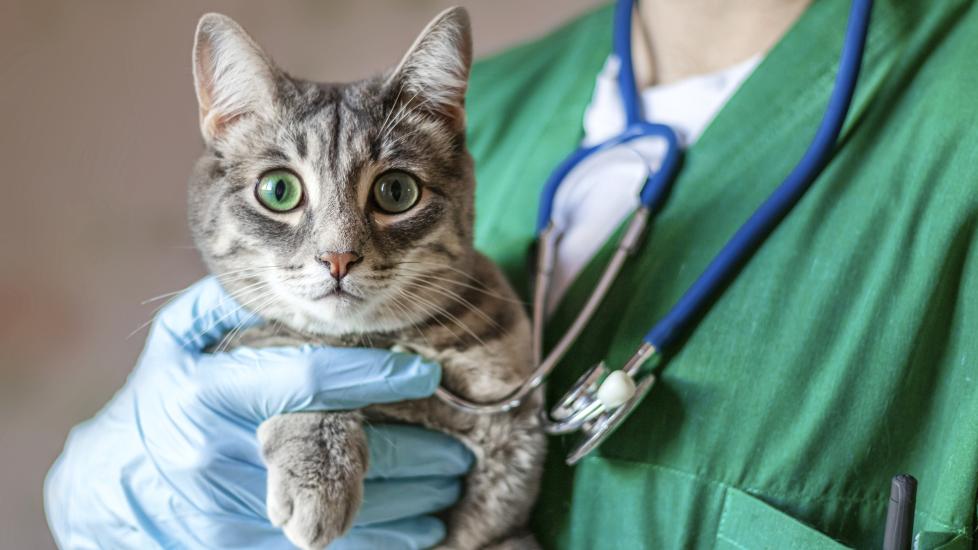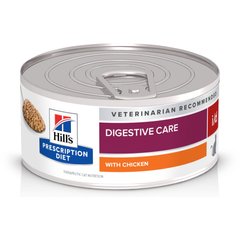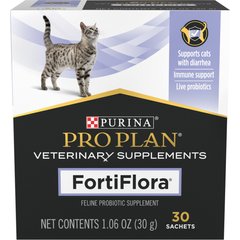Food Poisoning in Cats
What Is Food Poisoning in Cats?
The feline digestive tract is designed to efficiently digest and absorb nutrients from animal proteins. Cats have a highly acidic stomach, which helps them break down their food and can protect them from microorganisms that can cause disease such as bacteria or a virus. Despite this, your feline companion is still at risk for food poisoning.
Food poisoning in cats is any illness caused by pathogens in your cat’s food. The most common culprits are E. coli, listeria, and salmonella.
E. coli are bacteria that normally live in a healthy cat’s lower intestine. The strains that typically live in your cat’s gut are not harmful. However, other strains cause infection by adhering to cells and releasing toxins.
If your cat ingests a harmful E. coli strain, they can experience serious gastrointestinal (GI) problems such as stomach cramps, watery diarrhea, and vomiting. In severe cases, the infection can enter the bloodstream, leading to multi-system problems. Healthy adult cats rarely develop E. coli intestinal infections. However, kittens and immunocompromised cats have a high infection risk.
Listeriosis is a bacterial infection found worldwide. The condition is rare in cats but can cause issues such as brain inflammation, systemic infections, and pregnancy complications. Infection can occur through ingestion or inhalation, and infections transmitted through ingestion usually localize in the cat’s intestinal wall, resulting in an ongoing and prolonged shedding of the infectious agent in the feces.
Salmonellosis is a highly contagious bacterial disease that is transmitted primarily when a cat consumes contaminated food or water.
When a cat ingests a harmful salmonella strain and the pathogen survives the cat’s stomach acid, the bacteria invade the intestinal wall and produce toxins that cause an inflammatory response.
Most affected cats exhibit no signs, but GI disease and severe systemic infection can occur. Respiratory problems, eye and brain inflammation, and pregnancy complications have also been reported in cats with salmonellosis. This pathogen is the most likely cause of food poisoning in felines.
Food poisoning caused by any of these pathogens is considered a veterinary emergency in cats—it can be fatal if left untreated. In addition, these diseases are zoonotic, which means that you can get it from your cat.
Symptoms of Food Poisoning in Cats
Food poisoning signs in cats depend on the pathogen causing the infection.
Signs of food poisoning in cats caused by E. coli include:
-
Watery diarrhea with or without blood
-
Vomiting
Signs of listeriosis in cats include:
-
Vomiting
-
Lethargy
-
Fever
-
Decreased appetite
-
Facial nerve paralysis
-
Miscarriage or infertility
Signs of salmonellosis in cats include:
-
Diarrhea
-
Vomiting
-
Abdominal pain
-
Fever
-
Lethargy
-
Decreased appetite
-
Swollen lymph nodes
-
Abortion or infertility
Causes of Food Poisoning in Cats
Any cat can contract a pathogen from their food or water. However, kittens and immunocompromised cats have a high infection risk.
Cats can get food poisoning from eating the following:
-
Birds or small mammals
-
Garbage
-
Unpasteurized dairy products
-
Raw eggs or meat
-
Spoiled or contaminated pet food
How Veterinarians Diagnose Food Poisoning in Cats
If your cat shows signs of food poisoning, they should be examined by a veterinarian. To determine the cause of your cat’s illness signs, your vet may perform any of the following diagnostic tests:
-
History—Your veterinarian will ask questions about your cat’s diet, such as if they eat raw pet food, are allowed to hunt wildlife, or often get into the trash.
-
Physical examination—A thorough physical exam allows your veterinarian to assess your cat’s hydration status and neurologic condition and detect any abdominal abnormalities.
-
Blood work—Blood work, such as a complete blood count (CBC) and biochemistry profile, helps evaluate your cat’s overall health.
-
X-rays—Your veterinarian may recommend X-rays to rule out other causes, such as a foreign body obstruction, that may cause similar signs.
-
Fecal culture—Culturing your cat’s feces can identify E. coli and salmonella, and in some cases, listeria.
-
Blood culture—In some cases, a blood culture can determine the pathogen causing sickness.
-
Cerebrospinal fluid (CSF) analysis—If your cat has neurologic listeriosis, your veterinarian may need to analyze their CSF to make a definitive diagnosis.
Treatment of Food Poisoning in Cats
A cat with a mild case of food poisoning can be treated on an outpatient basis, but more severely affected cats are usually hospitalized. Treatments may include:
-
Intravenous fluids—IV or subcutaneous fluids may be necessary to control dehydration from vomiting and diarrhea.
-
Nutritional support—Cats can get extremely sick if they develop hepatic lipidosis, a condition that occurs if they don’t eat for several days. Your veterinarian may place a feeding tube to ensure your feline friend receives adequate nutrition.
-
Antibiotics—E. coli and listeriosis are often treated with antibiotics, but these drugs are only used in life-threatening salmonellosis cases because they can cause prolonged shedding of bacteria in the cat’s feces, which increases the risk of spreading the bacteria to other individuals, including other animals or humans.
-
Pain medications—Pain medications may be needed to control abdominal cramping.
-
Anti-nausea medication—Your veterinarian may also prescribe anti-nausea medications and appetite stimulants.
Recovery and Management of Food Poisoning in Cats
Recovery from food poisoning depends on the severity of your cat’s condition. Cats with severe symptoms will have a prolonged recovery period, and those affected by sepsis—or infection that spreads to the bloodstream—have a poor prognosis for survival.
To help your cat recover, follow your veterinarian’s directions and administer all recommended medications. Your cat will also need rechecks to determine their progress and ensure the bacteria are cleared.
While your cat is recovering, keep them quarantined from other household pets, and wash your hands thoroughly after handling or cleaning up after them.
In addition, your veterinarian may recommend a prescription GI diet or probiotics to help support your cat’s GI tract while they recover.
Prevention of Food Poisoning in Cats
Any cat can contract food poisoning, but you can lower your cat’s risk by:
-
Keeping trash in sealed containers and taking the trash outside when it contains moldy or spoiled food
-
Ensuring any food you offer your cat is thoroughly cooked
-
Checking your cat food labels to ensure the food isn’t expired
-
Refrigerating unused wet food portions in covered containers
-
Never feeding your cat a raw pet food diet or raw treats
-
Paying attention to pet food recalls
-
Not allowing your cat to hunt birds or small mammals
-
Not feeding your cat unpasteurized dairy products
Food Poisoning in Cats FAQs
How long does it take for a cat to get sick after eating something bad?
Depending on the pathogen your cat contracts, their symptoms usually occur within the following periods:
-
E. coli—Two to five days
-
Listeria—Two days to two months
-
Salmonella—Eight to 72 hours
Can I treat my food-poisoned cat at home?
Cats who have food poisoning symptoms should first be immediately evaluated by their veterinarian because their condition can deteriorate rapidly.
Featured Image: Yelena Shander/iStock / Getty Images Plus via Getty Images


